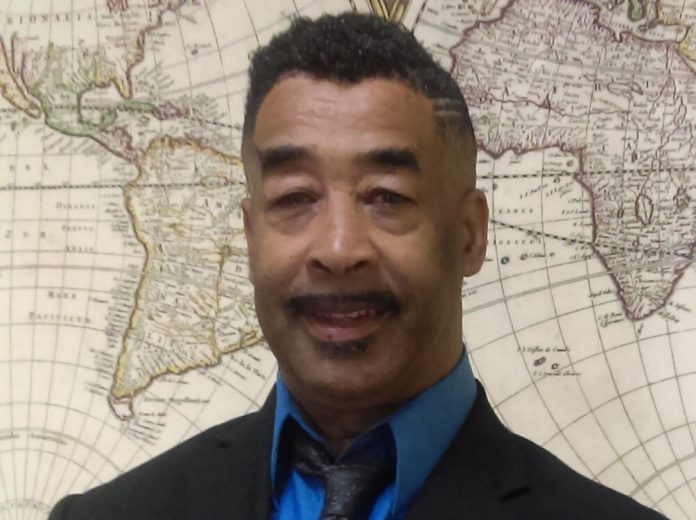Edward Murray knew early on that the art of the fable is as durable as the mind that conceives it.
The newly minted clinical psychologist was working on an Arizona Indian reservation with a young client whose frustrations had outstripped her level of understanding — nearly 30 years later, his simple anecdote to her would find its way into the publishing marketplace, featuring a rap-infused illustrated novella, a DVD, a storyboard, a GoFundMe account called SaferSchools and the potential, in his words, to “change the world.”
Edward Murray knew early on that the art of the fable is as durable as the mind that conceives it.
The newly minted clinical psychologist was working on an Arizona Indian reservation with a young client whose frustrations had outstripped her level of understanding — nearly 30 years later, his simple anecdote to her would find its way into the publishing marketplace, featuring a rap-infused illustrated novella, a DVD, a storyboard, a GoFundMe account called SaferSchools and the potential, in his words, to “change the world.”
It is called “When Push Comes to Shove: a Tale of Three Goats’ Lives,” and it represents more than its Seussian title implies. The 74-page book, first published in 2014 by Cricket Cottage Publishing of Orlando, Fla., is at the center of a critical thinking program that East County resident Murray asserts is marketable to all sectors of society. As change touches every life, he said, so too do the remedies to the difficulties that follow.
“We are best served,” the Fort Meade, Md. native adds, “when we have an ability to consult others, to think things through and then to act.”
The program has won praise from the San Diego psychology community and the San Diego Unified School District. Murray, who received his clinical psychology doctorate from Arizona State University in 1989, will promote the program before officials at Mira Mesa’s Jonas Salk Elementary School later this month.
Murray, 61, received a Certification of Special Congressional Recognition in 2012 for outstanding and invaluable service to the community.
The Ron Clowney-illustrated tale, which Murray calls a story-poem, starts out fancifully enough. Goats Fast-and-Furious, So-Mysterious and Careful-Serious call the Valley Try their home, in which they have learned their supposedly indelible behaviors.
Fast-and-Furious is the fearless one — things cannot happen quickly enough, even as his haste may block the path to a solution. So-Mysterious lives on the other side of the spectrum; upset at the timid world in which he shyly resides, to your peril. Careful-Serious combines the most obvious qualities of the other two, looking more than once at all sides of a problem before fueling a fix that’s best for all.
Change is about to hit Valley Try in a big way; the drought that threatens the herds’ lives is only the beginning. Ogres, a wise old patriarch, prescient birds and a tree-dwelling sage eventually lead the herds to the Valley Alternative, where life is again abundant and splendid — all because each goat had sought the others’ counsel in plotting the perilous course to their new home.
Rap-infused phrases color the advantages and pitfalls to the goats’ solutions, encouraging more spontaneous means (and perhaps a slightly guilty pleasure) to the story’s conclusion.
“We hope to make a revision,” Careful-Serious raps in the introduction, “on how we go through decisions; so we can work it all out, not getting lost in our doubts on how it is we proceed when caught up in high weeds.”
The book includes several learning formats for younger audiences, featuring suggestions on role-playing, creation of alternative scenes and methods for classmates divining the meaning behind the raps.
But Michelle Brown-Shelton, a retired official from the San Diego State University employment assistance program, says students are not the only potential beneficiaries.
“We’re in this generation of superheroes,” Brown-Shelton explains. “Superheroes don’t just resonate with kids. You find that they resonate with adults. I find that even though this looks childlike, I think it would be helpful even in the workplace. It’s fun. It’s interesting. It’s not one of those dry programs that you’re required to go and take.
“Currently, we’re working with four different generations in the workplace, and there’s a lot of conflict. So it’s not just for school. I can see it being applied to other areas.”
Murray agrees, pointing to one of the latest assaults on the psychological landscape. The names Marjory Stoneman Douglas and Parkland, Fla., he said, are indelibly seared onto the national consciousness, the repercussions invading daily life far beyond the classroom.
“There’s no answer in individual therapy as far as what society really needs,” he explained of the Feb. 14 school shooting aftermath. “It’s just too much. There are too many people. There are too many problems. There’s just too much going on.
“But this program is intoxicating, because you know you really are helping a lot of people, and you see the need, even though it’s only a finger in the dike and the water’s coming in.
“I feel that this has the potential to change the nation, change the world, because of the way that it makes us do our best with our circumstances. It doesn’t matter who you are, what you’ve accomplished, how great you are or how small you are. This kind of thing fits in, right now, and it will help you.”
For more information on the program, see storybasedcriticalthinkingtraining.com. Cricket Cottage Publishing’s telephone number is 407-255-7785; its website is at thecricketpublishing.com.














